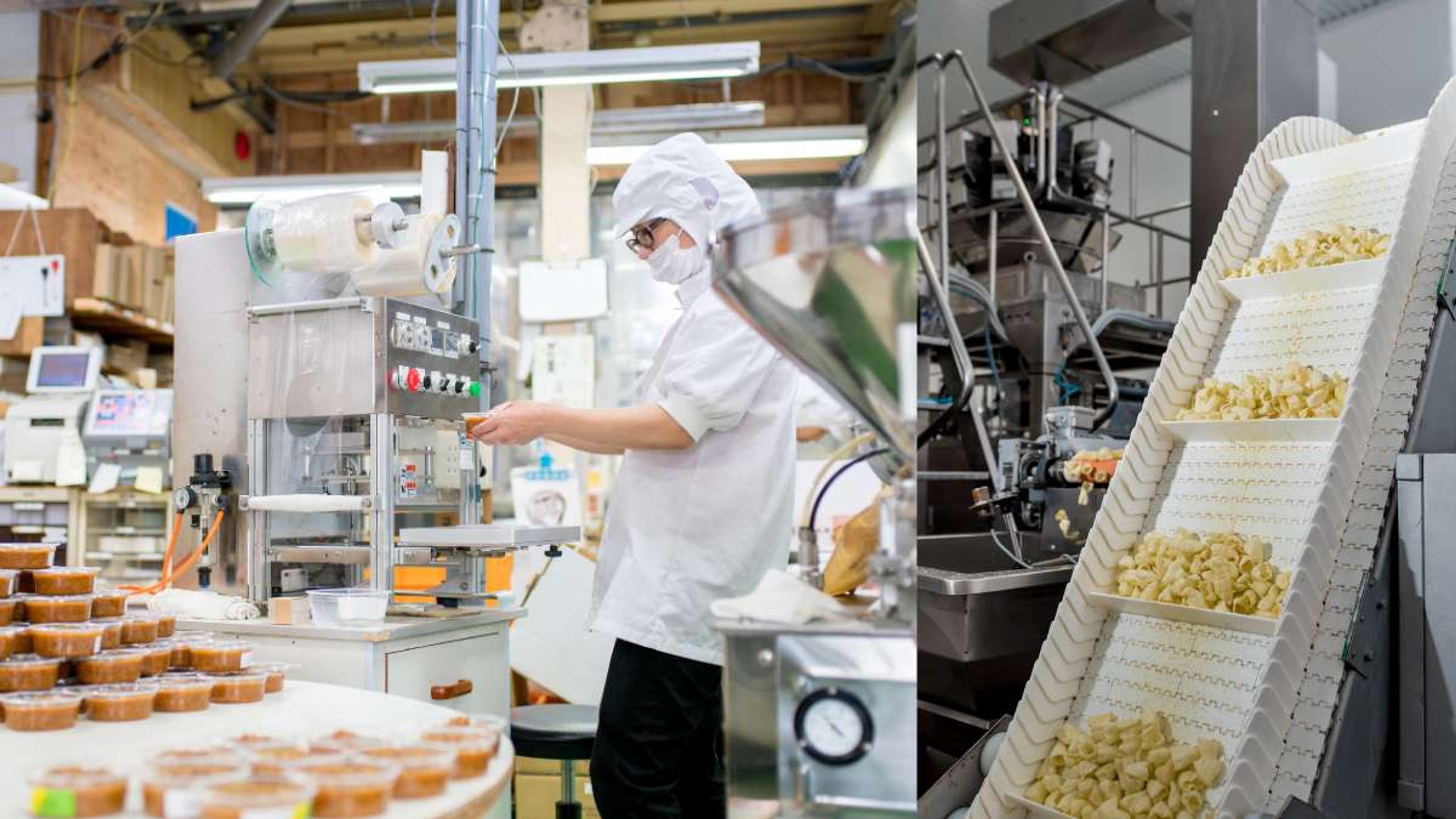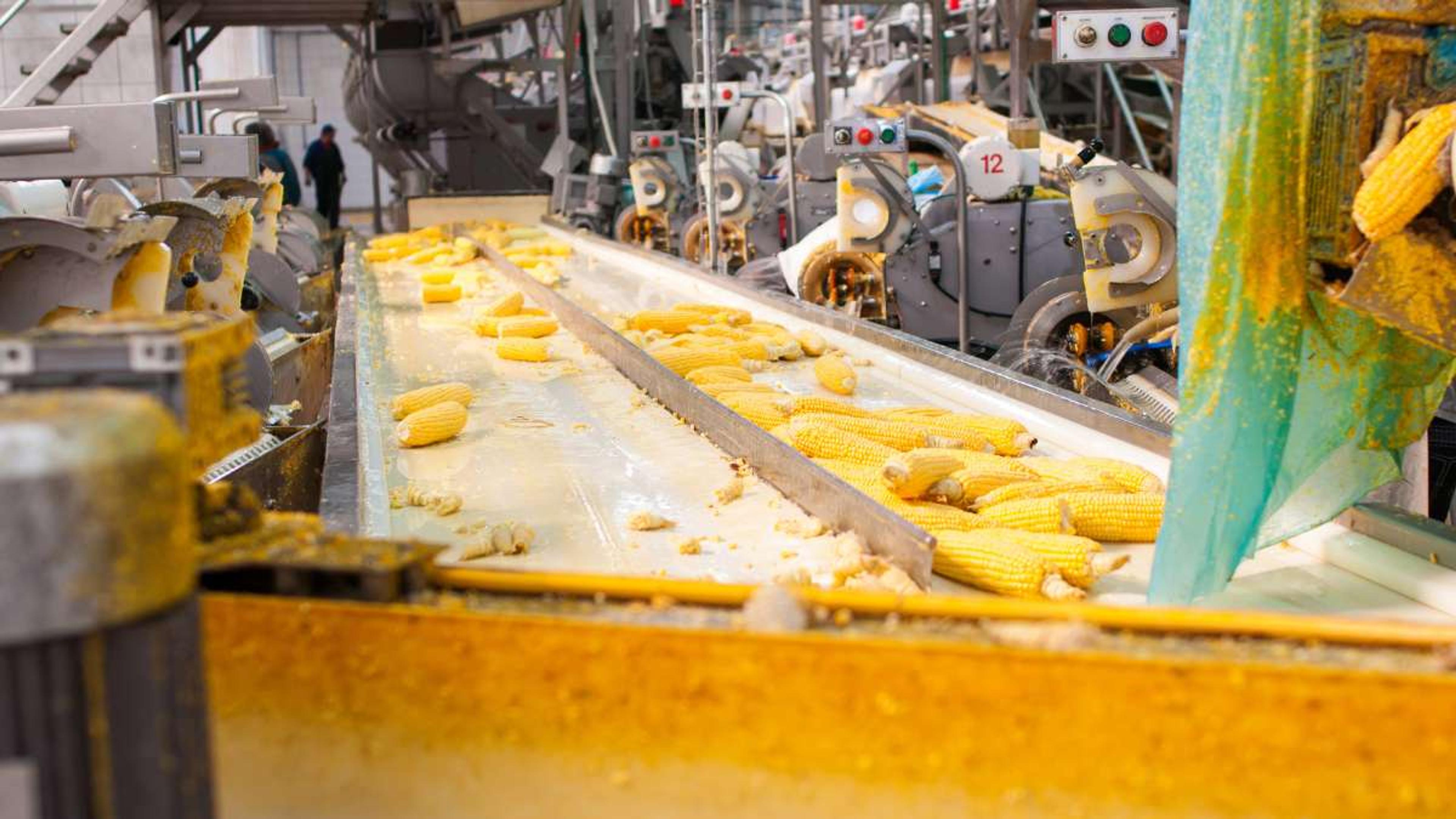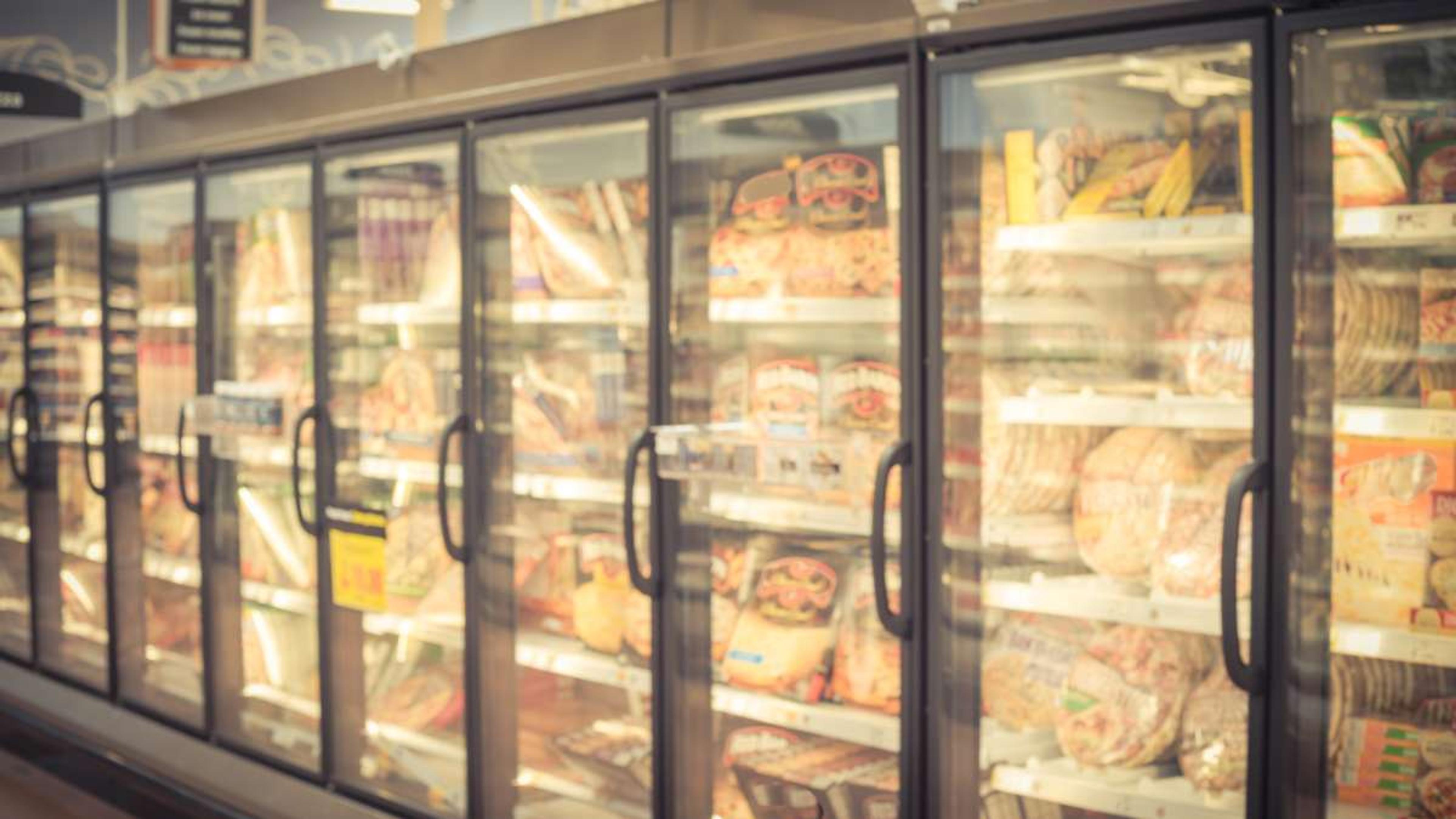Vegan Processed Food: The Pros and Cons You Need to Know

- Key Takeaways
- What Constitutes as "Processed" in Vegan Foods
- Vegan Processed Foods
- Health Implications
- 4 Considerations for Incorporating Vegan Processed Food
- Striking a Balance
- Conclusion
- FAQs
Are you a vegan looking for healthier food options? Did you know that not all vegan foods are created equal? In fact, some may even have negative health effects.
In this blog post, we will explore the world of vegan processed food and uncover the potential risks and benefits associated with it.
Curious to learn more? Let's dive in!
Key Takeaways
- Vegan processed foods undergo changes, like adding sugars, oils, and salts or removing fiber and water.
- Ultra-processed vegan foods contain unhealthy ingredients like added sugars, fats, and artificial flavors.
- Whole plant-based foods are less processed and retain their natural nutrients.
- Consuming too many processed vegan foods can lead to weight gain and increase the risk of chronic diseases.
What Constitutes as "Processed" in Vegan Foods
"Processed" in vegan foods involves changing the raw food to make it easier to eat or last longer. Vegan processed foods can have things added like sugars, oils, and salt.
They also take out fiber and water. Some of these foods mimic meat and are full of additives. This includes plant-based burgers, sausages, and seafood substitutes.
Other kinds of vegan processed foods have fewer changes made to them. Tofu, almond milk, and breakfast cereals fall in this group but still go through some change from their natural state before we eat them.
Learning about how much processing your vegan food has had will help you make better choices for your health.
Vegan Processed Foods
Vegan processed foods encompass a wide range of products, from minimally processed options like tofu and tempeh to heavily processed items such as vegan burgers, ice cream, and packaged snacks.

Ultra-processed Vegan Foods
Ultra-processed vegan foods come from plants. They go through a lot of changes before you eat them. For example, people make these kinds of food with a mix of things like soy and mycoproteins.
Then, they add sugars, fats that are not good for you, and fake flavors or colors to make it taste better.
A few examples are "meat" made from soy or tofu burgers. Some other types are fast food like fries and vegan ice cream that has lots of sugar in it. These foods often have too much unhealthy ingredients and do not have the nutrients your body needs.
Whole Vegan Foods vs Processed Counterparts
Whole vegan foods come straight from the earth. They are things like fruits, vegetables, legumes, and whole grains. These foods have all their parts. They have not been changed or messed with in a factory. Whole vegan foods retain fiber and other nutrients you need for good health.
Processed vegan foods go through steps to make them long lasting and easier to eat. For example, tofu is made from soybeans that get mashed up and cooked in a special way to turn them into blocks of tofu. Processed vegan foods may lose good nutrients during the changes they go through.
Health Implications
Vegan processed foods can have negative consequences on health, including an increased risk of chronic diseases and mortality. To learn more about the nutritional comparison between whole foods and processed vegan options, continue reading.

Negative Consequences on Health
Consuming vegan processed foods can have negative effects on our health.
- These heavily processed products often contain high levels of added sugars, unhealthy fats, and artificial additives.
- They lack the essential nutrients found in whole plant-based foods, leading to nutritional deficiencies.
- Following a vegan diet without proper planning can result in deficiencies of vitamin B12, omega-3 fatty acids, calcium, zinc, and iron.
Studies have shown that diets high in ultra-processed foods, including vegan options, are linked to increased risk of weight gain, mortality, type 2 diabetes, chronic diseases such as cardiovascular and cancer. It's important to be mindful of the health risks associated with consuming too many processed vegan foods and strive for a balanced diet rich in whole plant-based foods instead.
Nutritional Comparison - Whole foods vs Processed Vegan Foods
Whole Foods
- Protein: Whole foods, such as legumes, nuts, seeds, and whole grains, provide substantial amounts of high-quality protein, which is more easily absorbed by the body compared to processed sources.
- Fiber: Foods like fruits, vegetables, whole grains, and legumes are excellent sources of dietary fiber, which aids in digestion and satiety.
- Vitamins & Minerals: Whole foods are generally rich in essential vitamins and minerals, including iron, calcium, and vitamin B12.
- Fats: Whole plant foods contain healthy fats like monounsaturated and polyunsaturated fats.
- Added Sugars: Whole foods contain natural sugars that come with fiber, water, and various beneficial compounds.
- Preservatives: Whole foods are natural and do not contain preservatives.
Processed Vegan Foods
- Protein: Processed vegan foods often contain soy protein isolate or textured vegetable protein, which are less digestable and might lack some essential amino acids.
- Fiber: Processed vegan foods often contain refined grains, which have their fiber content reduced during processing.
- Vitamins & Minerals: Processed vegan foods may lack these nutrients, or may contain them in less bioavailable forms.
- Fats: Processed vegan foods can contain higher amounts of unhealthy fats, such as trans fats and saturated fats.
- Added Sugars: Processed vegan foods often contain added sugars, which can contribute to various health problems if consumed in excess.
- Preservatives: Processed foods often contain preservatives to extend shelf life, which can have negative impacts on health if consumed in large amounts.
4 Considerations for Incorporating Vegan Processed Food
More often than not, vegan processed are considered for convenience and accessibility benefits. However, it is important to balance it with whole, unprocessed foods and be aware of the environmental impact.

1. Convenience and Accessibility Benefits
Vegan processed foods offer convenience and accessibility benefits for those following a plant-based diet. These products are readily available in grocery stores, making it easier to incorporate them into meals and snacks.
They often come in convenient packaging that can be easily stored and prepared, saving time in the kitchen. Additionally, vegan processed foods cater to people with busy lifestyles, as they can be quickly heated or eaten on the go.
So while they may provide convenience and accessibility, it's essential to consider their nutritional value and balance them with whole, unprocessed plant-based options for optimal health outcomes.
2. Reading labels
When incorporating vegan processed foods into a plant-based diet, it is important to pay attention to the nutritional value and read labels carefully. This ensures that the products meet your dietary needs and do not contain unhealthy additives or ingredients.
Plant-based diets may lack certain nutrients like protein, iron, calcium, zinc, vitamin B12, and vitamin D. By reading labels, you can make sure that these nutrients are present in the processed foods you choose.
Additionally, watch out for excessive amounts of saturated fat, sodium, and added sugars in these products. Balancing processed vegan foods with whole, unprocessed plant-based options is crucial for maintaining a balanced diet that supports overall health.
3. Balancing with Whole, Unprocessed Foods
To maintain a healthy plant-based diet, it's important to balance the consumption of vegan processed foods with whole, unprocessed options. Here are some ways to achieve that balance:
- Prioritize whole plant foods: Fill your plate with plenty of fruits, vegetables, legumes, whole grains, and nuts. These provide essential nutrients while also being minimally processed.
- Choose homemade meals: Cooking your own meals allows you to control the ingredients and minimize the use of processed additives like preservatives and sweeteners. Plus, it can be a fun way to experiment with new flavors and recipes.
- Limit highly processed options: While vegan alternatives like burgers or sausages can be convenient substitutes, they are often highly processed. Use them in moderation and focus on incorporating more whole plant foods into your diet.
4. Environmental Impact
The environmental impact of our food choices is an important aspect to consider when discussing vegan processed foods. Plant-based diets have been shown to be more environmentally friendly compared to diets that include animal products.
By choosing vegan processed foods, we can further reduce our carbon footprint and contribute to a healthier planet. So by opting for plant-based alternatives that are minimally processed and sustainably sourced, we can make a positive impact on both our health and the environment.
5. Experimenting with Homemade Alternatives
Experimenting with homemade alternatives can be a fun and healthy way to reduce reliance on processed vegan foods. Here are some ideas to get started:
- Make your own plant-based burgers using ingredients like lentils, mushrooms, or black beans.
- Create your own dairy substitutes by blending soaked nuts or seeds with water, then straining the mixture.
- Try making your own plant-based sausages using vital wheat gluten, spices, and vegetable broth.
- Make your own energy bars or snacks using dates, nuts, and seeds.
- Whip up your own plant-based ice creams using frozen bananas as a base and adding in flavors like cocoa powder or fruit.
Striking a Balance
To improve the nutritional quality of vegan diets, it is important to emphasize whole, minimally processed plant-based foods such as fresh fruits and vegetables. Making homemade nutrient-dense meals can also enhance overall health and well-being.
1. Emphasizing Minimally Processed Plant-based Foods
To improve the nutritional quality of a vegan diet, it is important to focus on whole, minimally processed plant-based foods. These foods provide essential nutrients and promote optimal health. Here are some ways to incorporate these foods into your diet:
- Choose whole grains like brown rice, quinoa, and oats instead of refined grains like white rice and white bread.
- Include a variety of fruits and vegetables in your meals. Aim for different colors to ensure a wide range of vitamins and minerals.
- Opt for legumes such as beans, lentils, and chickpeas as a source of protein instead of relying solely on processed meat alternatives.
- Incorporate nuts and seeds into your diet for healthy fats and added nutrients.
- Use natural sweeteners like dates or maple syrup instead of refined sugars in recipes.
- Cook meals from scratch using fresh ingredients whenever possible.
2. Incorporating Fresh Fruits and Vegetables
Here are some ways to incorporate fresh fruits and vegetables into your meals:
- Enjoy a variety of colorful fruits and vegetables every day.
- Fill half of your plate with a mix of vibrant fruits and vegetables.
- Choose different colors like red, orange, green, and purple to ensure a range of nutrients.
2. Have a fruit or vegetable with every meal and snack.
- Add sliced bananas or berries to your breakfast cereal or oatmeal.
- Snack on carrot sticks or apple slices with nut butter.
3. Experiment with different cooking methods.
- Try roasting Brussels sprouts, broccoli, or sweet potatoes for added flavor.
- Steam veggies like spinach or kale to retain their nutrients.
4. Include salads in your daily routine.
- Make a salad with mixed greens, cherry tomatoes, cucumbers, and avocados for lunch or dinner.
- Add toppings like nuts, seeds, or dried fruits for extra texture and taste.
5. Incorporate fresh produce into smoothies and juices.
- Blend fruits like strawberries, bananas, and mangoes with leafy greens for a nutritious drink.
- Use vegetables like spinach or kale in green smoothies for an extra nutrient boost.
3. Incorporating Homemade, Nutrient-Dense Meals
- Opt for whole grains like quinoa and brown rice instead of refined grains
- Use plant-based protein sources such as legumes, tofu, and tempeh
- Experiment with different herbs and spices to add flavor without relying on processed seasonings
- Cook with healthy fats like olive oil or avocado instead of saturated or trans fats
- Make your own sauces and dressings using natural ingredients like lemon juice, vinegar, and herbs
- Avoid adding excessive amounts of salt or sugar to your homemade meals
- Prioritize nutrient-dense foods that provide essential vitamins and minerals
- Plan your meals ahead of time to ensure you have the necessary ingredients on hand.
4. Making Informed Choices
When it comes to incorporating vegan processed foods into a plant-based diet, making informed choices is crucial. While these foods can offer convenience and accessibility benefits, they may also have negative health implications if consumed excessively.
By being aware of the potential pitfalls and making mindful choices, individuals on a vegan diet can improve the overall nutritional quality of their meals and support their well-being.
Conclusion
In conclusion, while vegan processed foods may offer convenience and accessibility, they come with health implications. These heavily processed options can lack essential nutrients and increase the risk of chronic diseases.
It's important to prioritize whole, unprocessed plant-based foods in order to maintain a healthy vegan diet. By making informed choices and incorporating nutrient-dense homemade alternatives, we can improve the nutritional quality of our meals and promote overall well-being.
Let's strive for a balanced approach that prioritizes whole foods over highly processed options.
FAQs
1. What is vegan processed food?
Vegan processed food is any food made for vegans that goes through a degree of processing. This involves adding emulsifiers, texturizers or starches to vegan products.
2. How does eating vegan processed foods affect vegetarians health-wise?
Eating too many unhealthy plant-based products could lead to obesity and iron deficiency even in vegetarians who follow such diets thinking they are healthy.
3. Is all vegan processed food bad?
No, not all vegan processed foods are bad! For example, some types of yogurt have fibre which is very good for you!
4. Are meat eaters healthier than people who eat lots of vegan junk foods?
The study on epidemiology from Université Sorbonne Paris Nord suggests the consumption of ultra-processed foods can be bad for anyone; both meat eaters as well as those on vegetarian diets.
5. Why do people choose to eat easy meals like these if they can be unhealthy?
Many people go after easy meals like these due to lack of time or awareness about their possible negative health effects.
6. Are vegan processed foods generally healthier than non-vegan processed foods?
Vegan processed foods are not necessarily healthier than non-vegan processed foods. While they may be free from animal products, they can still be high in unhealthy additives, sugars, and fats. It's important to read labels and choose minimally processed, whole food options for a healthier diet.

